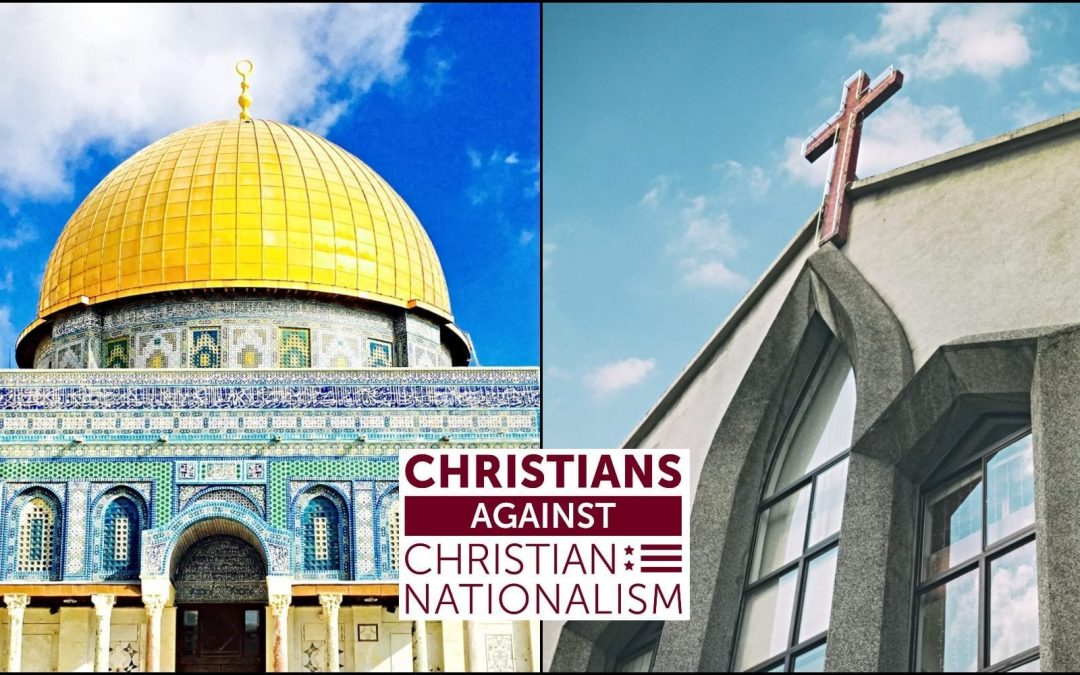I had the privilege of living and ministering for almost 25 years in Indonesia, the beautiful string of island pearls that wraps some 3,100 miles along the equator in southeast Asia.
Blessed with surprising biodiversity, fascinating and distinct cultures, a wealth of linguistic traditions and dynamic languages, and a gracious people who are rich in history and customs, Indonesia is the fourth largest nation in the world.
It is wonderfully appropriate that the national motto of this complex of peoples and places is “Bhinneka Tunggal Ika” (Unity in Diversity).
The diversity of the land and the people comprising the Indonesian archipelago makes it such a treasure in the world, a captivating tourist destination and a delightful home for thousands of expatriates like my family.
One other significant factor enriches the diversity of Indonesian life: the multiplicity of religions.
Throughout the islands, numerous folk religions engage the loyalties of tribal peoples and govern their daily lives.
On the islands of Java and Bali are the monuments and rituals accompanying Hinduism and Buddhism, dating back to the seventh century CE.
Immigrants from the East have brought an array of Chinese religious ways to Indonesia, while explorers and merchants from the West have planted Christianity in the soil of these tropical shores.
But it is the teachings of the Prophet Muhammad that have gained ascendency in Indonesia, now the most populous Muslim nation on the globe.
The diversity of this relatively young nation (1949) is enshrined in “Pancasila,” the national ideology of the Republic of Indonesia, which consists of five principles, according to the Contemporary Indonesian-English Dictionary by A. Ed. Schmidgell-Tellings and Alan M. Stevens:
- Belief in the only one God
- Just and civilized humanitarianism
- Indonesian unity/nationalism
- Democracy led by wisdom born of consultation
- Social justice for the entire Indonesian population
The doctrine of Pancasila has helped the Indonesian government and people to resist any attempts to make the country more exclusive, sectarian or monolithic.
Nonetheless, there is a populism, especially on the most densely populated and politically influential island of Java, that has argued against this religious and cultural diversity.
Thus, it was common to hear or read assertions that “to be Javanese (or Indonesian) is to be Muslim.”
This banner cry was a denial of the existence and contributions of the millions of Indonesians whose religious and cultural traditions were animist, Hindu, Buddhist, Confucian, Taoist, Christian, secular or any of a number of other philosophies.
When I heard or read this perspective, it not only seemed shortsighted, but also unkind and bigoted.
The parallels with the diverse country of the U.S. in which I live seem obvious.
Our national motto is “E Pluribus Unum” (Out of Many, One). We are the third most populous nation in the world, comprised of people of many races, ethnicities, languages and cultures.
Yet, we all comprise the whole of this nation, and the very diversity of our people has helped to make us attractive to the rest of the world.
An important element of our diversity, to be sure, is our religious differences. We Americans practice many religions, or no religion, and this freedom to choose to believe according to the dictates of our own consciences was part of the founding vision of our forebears.
Yet, today there is a banner cry that has arisen, which falsely claims “to be American is to be Christian,” as Amanda Tyler, executive director of BJC, pointed out in her recent column. And when I hear this assertion, I know that it is not only shortsighted, but also unkind and bigoted.
This is one of the insidious lies of Christian nationalism – the mistaken notion that our nation is a Christian nation only, that God only favors those of us who are Christian, and that those who are not Christian must either be converted or sent back home.
This belief and the movement it spawned has the potential to bring sweeping negative changes to our beautifully diverse nation.
May we all resist this impulse with determination, courage and the conviction that the Creator God loves diversity.
Editor’s note: This article is part of a series focused on Christians opposing Christian nationalism. It is published in conjunction with the launch of a BJC-led initiative ChristiansAgainstChristianNationalism.org. The previous articles in the series are:
US Christians Speak Out Against Christian Nationalism | EthicsDaily.com staff
Threat of Christian Nationalism Has Reached High Tide | Amanda Tyler
Freedom Fighters: Baptist Defenders of Religious Liberty | Pam Durso
Your Fight Song Against Christian Nationalism: I Won’t Back Down | Brian Kaylor
Why Christian Nationalism Cannot Tolerate Crucified King | Jakob Topper
Can Theological Education Challenge Rising Nationalism? | Molly T. Marshall
Many Christians Don’t Acknowledge Their Christian Privilege | Michael Cheuk
Christian Nationalism: Kill the Indian, Save the Man | Mitch Randall
Christian Nationalism Slams Door on Those Seeking Refuge | Sue Smith


